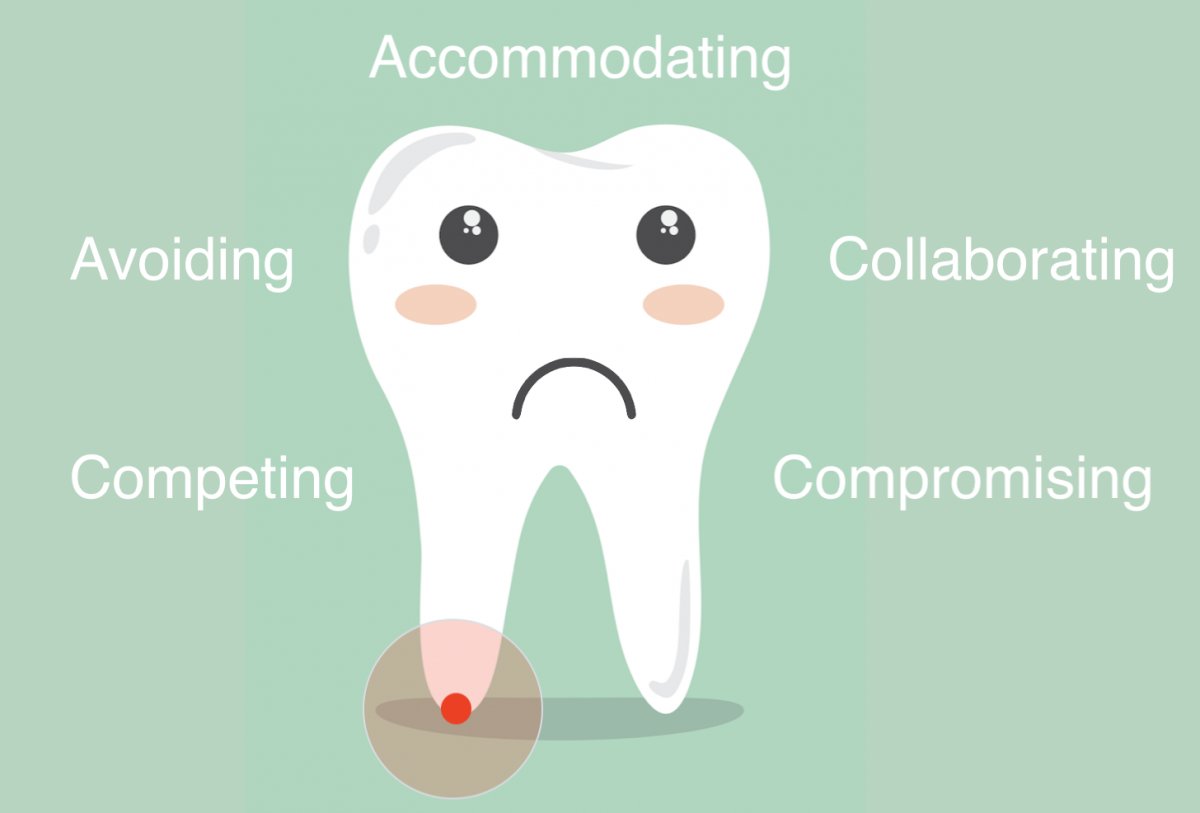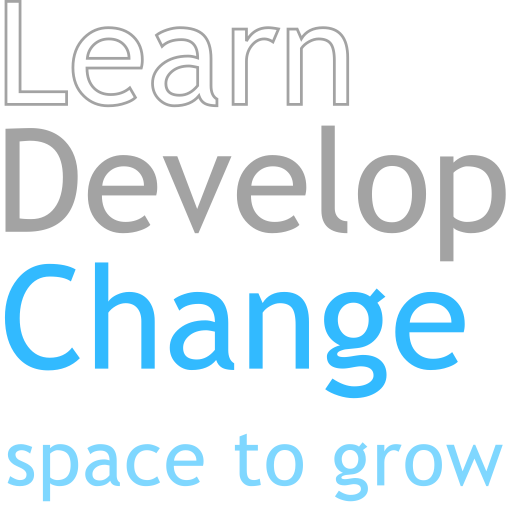Conflict is a bit like toothache. Perhaps it starts small and is easy to ignore. Maybe it even stops hurting for a while, and you can forget about it. Just because the pain went away, it doesn't mean the issue is resolved. Sooner or later it's going to hurt.
According to research by Kenneth Thomas and Ralph Kilmann there are five ways of tackling conflict. These five approaches are made up of a mix of assertiveness and cooperativeness. Can you spot your preferred way of tackling conflict?
 Competitive: you know what you want, and you are determined to get it. The outcome is likely to be unpopular. You need a resolution quickly. You're confident in the sources of your power (hierarchy, position, knowledge), your skills. You are sure you are right.
Competitive: you know what you want, and you are determined to get it. The outcome is likely to be unpopular. You need a resolution quickly. You're confident in the sources of your power (hierarchy, position, knowledge), your skills. You are sure you are right.
Analysis: Good for tough situations where time is of the essence. Useful when working with people who might be tempted to take advantage of collaborative approaches. Bad for smaller-scale situations. People can end up feeling upset by the experience.
Collaborative: you want to find an answer that works for everyone and are prepared to make this happen. All sides have a valid concern that needs to be considered. You want to get everyone onboard with the solution.
Analysis: Good for bringing people together to work out the best way forward. Risky if the other party is not interested in working together, or you need a solution fast. You will need to be patient.
Compromising: You are happy with 'good enough' rather than achieving your ideal outcome. No one will get exactly what they want. You want to get things moving after an impasse.
Analysis: This approach is great to unlock an impasse, but no one will be an entirely happy with the result. You might find yourself back in conflict again.
Accommodating: You are prepared to deliberately concede ground in order to win the other side over. You are prepared to lose the battle to win the war.
Analysis: This is a risk - as there's no guarantee that you will achieve your long-term goal. On the other hand, you might gain the moral high ground. You can make it easier for people to learn and grow.
Avoiding: You decide that leaving well alone and let things follow their natural course. By stepping away you let others resolve matters for themselves. You decide to save your energy and time for more important matters or situations where you can make a difference. It's important to recognise that not everything gets better if it's avoided.
Analysis: If the chances of securing a positive outcome are so slight that they are highly unlikely, then letting go and moving on could be the most sensible thing to do. The downside of course is that you have given in completely, and you will never know if a little persistence would have got you closer to a better outcome.
OK now think of a difficult situation that you were involved in or that might be on the horizon for you. Which style do you always try first? From your experience of the other person what do they prefer? If you tried a different approach what opportunities would that make?
Next time we'll look at ways of gauging how much control you have and how to us scaling questions to help you (and them) get to a better outcome.

